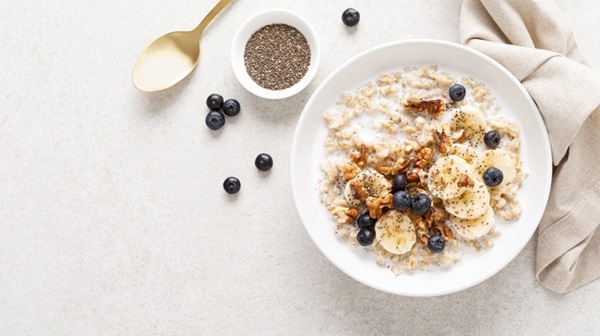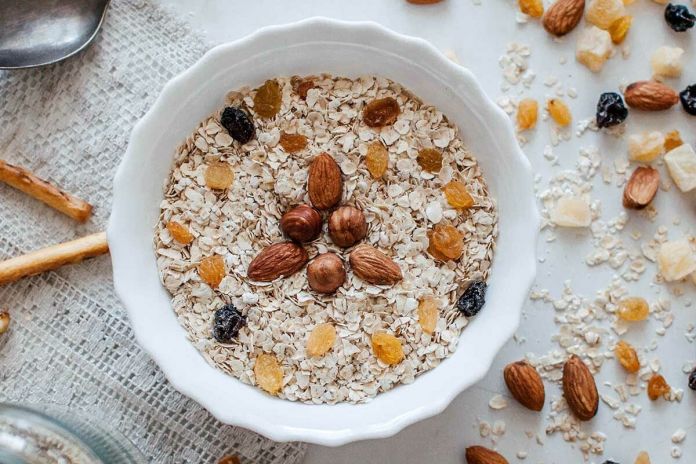Oatmeal Monday also known as Meal Monday, is celebrated in February on the second Monday. This year, it will be observed in February. Over 300 years ago, this holiday is began as a University holiday in Scotland. This meal is popular for good reason as it is quick to prepare, a good nutrition source and works as an energy booster. This meal is appreciated for its versatility and has different inventive flavours. It can be consumed with cold and light berries and fruits for breakfast or served hot with milk and almonds for dinner. There are more than 800 ways to make oats and this meal has been a great choice for many university students on hungry nights.
History of Oatmeal Monday
Oatmeal Monday is a traditional Scottish celebration that dates back to the 17th Century. In the early days of formal education, Scootish University’s students were required to carry their fuel and food to the campus. There were no canteen cooks, therefore students had to prepare their meals by themselves. Mostly they relied on simple and quick recipes like porridge and soup.
As their supply started to dwindle a week or two, the university declared long weekend holidays as an opportunity for them to replenish their stock. The Mondays following these weekends were known as Oatmeal Mondays, as students came back to campus with fresh supplies.
Every Oatmeal Monday, a gathering took place in an open area to celebrate their safe return with the sourced bounty. In the early 18th Century, long weekends were common.
The universities of Aberdeen and Glasgow celebrate Oatmeal Monday throughout the 19th Century. As it became easier to get food, the focus of the celebration was mostly on students preparing their meals together.

Universities across Scotland designated a Monday of each month to celebrate the day. This changed in 1896 when the University of Edinburgh announced the second Monday of February as the official Oatmeal Monday. On the second Monday of February, we gather to show our gratitude for the availability and access to food and enjoy a bowl of porridge.
Also read, National Stuffed Mushroom Day – February 4, 2025
Timeline of Oatmeal Monday
| 2000 B.C. (African Roots) | Some findings trace the first origins of this grain meal to Egypt’s 12th Dynasty. |
| 1602 (The International Prominence) | Oats, a Scotland staple, is introduced to the Western world by Scottish settlers. |
| 1700s (School Supplies) | It is claimed around this time Scottish students carry oats among other supplies as part of their school provisions. |
| 1823 (The Whiskey Intervention) | Oats harvest relapses as farmers shift their resources to barley production after the legalization of whiskey. |
| 1885 (The University Rituals) | Universities across Scotland observe Meal Mondays on the first Monday of every month. |
| 1896 (The February Declaration) | The University of Edinburgh announces the second Monday of February as the official celebration of Oatmeal Monday. |
| 1997 (Healthy Benefits Established) | The Quaker Brand makes claims that oats help to lower saturated fats, lower cholesterol and generally decrease the risk of heart disease. |
10 Interesting Things About Oats
- There are two types of oats – husked and naked.
- They are planted during the summer or early autumn and stay dormant during the winter. During the winter, the plants germinate and gather energy. The oats starts to grow during the spring.
- This grain is a cool-season crop that requires a cold winter to thrive. They are mainly grown in Russia, Canada, Europe, and the United States. In the U.S. they are usually grown in the Midwest and other northern regions.
- In 2020, the United States produced 65.4 million bushels of oats and more than 33% was cultivated in South Dakota and Minnesota.
- Oats offer a higher protein than most other cereal grains and are high in antioxidants.
- Farmers use a combine harvester to collect the grains, which are then stored in silos.
- Due to its soft nature farmers use it as bedding for cattle and horses.
- In 1602, the Scottish Settlers introduced the grain to North America.
- These grains are rich in beta-glucan, a soluble fibre that aids in reducing cholesterol, and blood sugar, and improves the growth of good bacteria in the digestive tract.
- Oats are used to relieve skin conditions such as eczema and heat rashes.
Frequently Ask Question
When is Oatmeal Monday celebrated?
Oatmeal Monday is observed on the second Monday of February each year; in 2024, it will be on February 12.
What historical significance does Oatmeal Monday have?
The tradition dates back to the 17th century when Scottish university students would return to campus after long weekends with fresh supplies of food, primarily oats, which were an essential part of their diet.
What do Scots call oatmeal?
In Scotland, oatmeal is referred to as “brose,” which is a form of raw porridge.
Is there a difference between oats and oatmeal?
Yes, oats are whole grains in their raw form, while oatmeal is a processed version that has been cut and rolled for quicker preparation.
Can you eat oatmeal every day?
Yes, generally one serving of oats can be consumed daily, but it depends on the type of oats and individual dietary needs.
Are oats gluten-free?
Naturally, oats are gluten-free; however, they can be contaminated with gluten during processing if they come into contact with other grains like wheat or barley.
How long can oats be stored?
Dried oats can be stored for up to nine months in a cool, dry place and can last about 36 hours in the fridge depending on added toppings.
What are some activities to celebrate Oatmeal Monday?
Activities include hosting an oatmeal dessert party, planning a trip to Scotland, or distributing cookies to local schools.
What are some health benefits of oats?
Oats are packed with nutrients that help with weight loss, skin health, and heart conditions by lowering cholesterol levels
You may also like to read, National Chocolate Fondue Day – February 5, 2025
